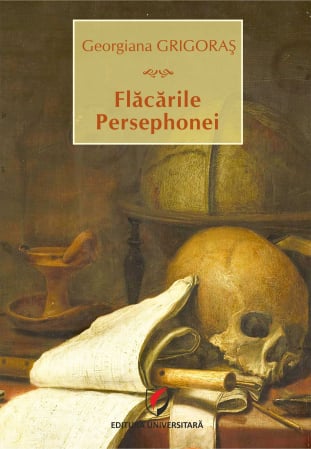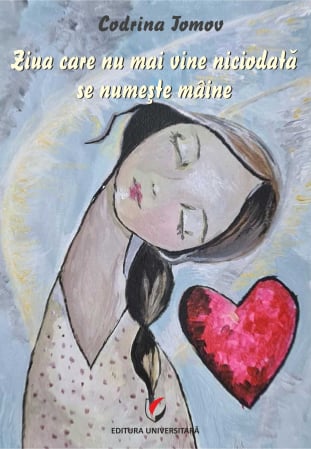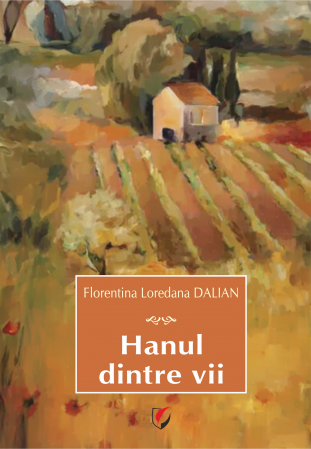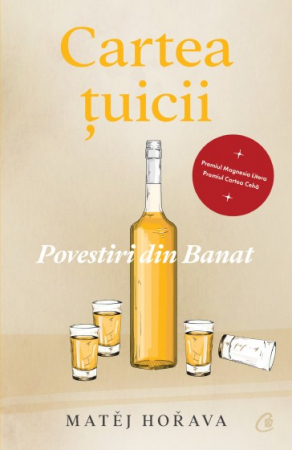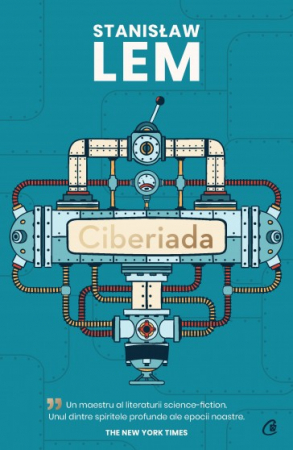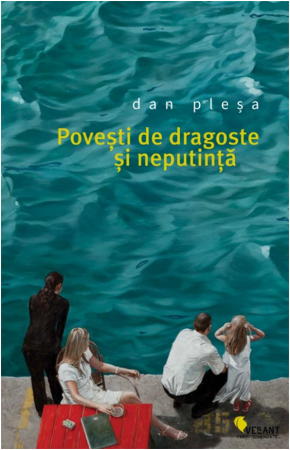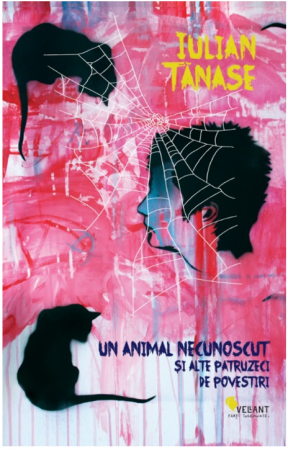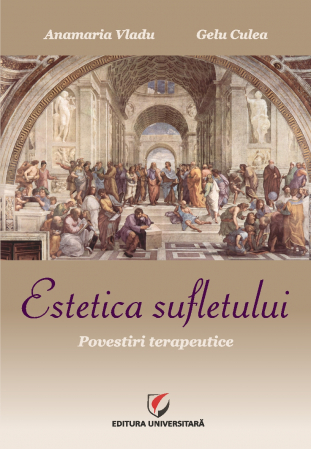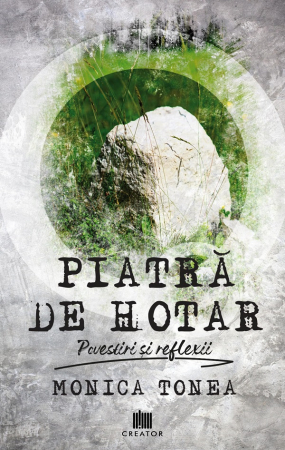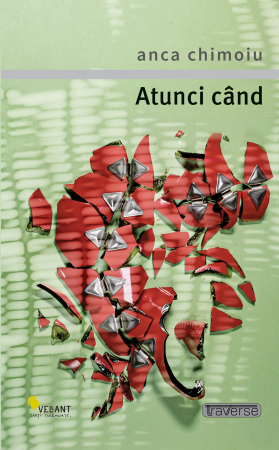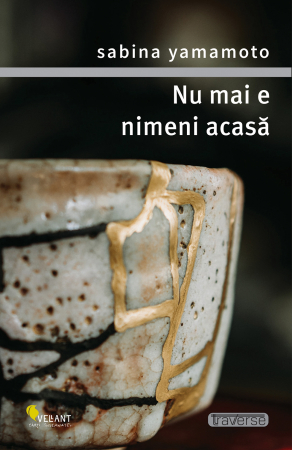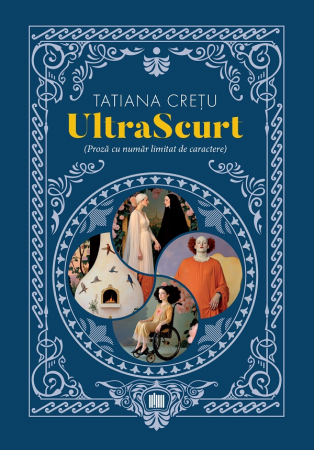Manuscript proposals: [email protected] / 0745 204 115 //// Tracking orders Individuals / Sales: 0745 200 357 / Orders Legal entities: 0721 722 783
Publisher: Editura Universitară
Author: Clelia Ifrim
Edition: I
Pages: 90
Publisher year: 2022
ISBN: 978-606-28-1512-7
DOI: 10.5682/9786062815127
Product Code:
9786062815127
Do you need help?
0745 200 357
- Description
- Download (1)
- Authors
- More details
- Reviews (0)
A drama by Clelia Ifrim, The Acts of Angels, will hopefully be performed on stage with elements of Noh theater in Japan. It is important to remember that a new Noh play will not be written, but a new theater infused with aspects similar to Noh theater will be created.
As Yoko Uchitu says: “Noh theater actually has no concrete definition. It is written in Japanese poems called Waka and uses minimal, specific and flowing movements that express the deep, incurable emotions of Shi-te (Main Character). In this way, he releases the heart of everyone in the audience as if it were a prayer. And this is only one of the ways to express oneself in Noh. To classify Noh as a theater style is ridiculous. It is not enough for a play to have the elements of Noh to be classified as such. We understood this offer and we will perform Clelia's play creating a theater with the flavor of Noh infused in it."
On the occasion of the Author Portrait, we will describe the present and the future of this project. Yoko Uchitsu, an expert in Noh theater commented on the play translated into Japanese by me. From here on more people will get involved and we are in the stage of making the script and the Noh skits that will be incorporated into the final theater.
The most difficult part to translate was when there were no complete sentences in the theater libretto and I had to deduce the message of the story. As a translator, I took the metaphors of the train and stations to represent Tin-tin (the name of the main character) who left the country many years ago and that the story takes place when he returns after a long time. In my understanding, it is probably a comment on the current Romanian society.
The sense of time in this story is unique. Like a play by Samuel Beckett, almost everything takes place in the present, and events happen independently of time. The thread of the action is not as concrete as in other plays, and I felt that most of the scenes take place only in Tin-tin's imagination. This more evasive and contemplative sense of time resembles Noh, and that's why we think the fusion will be wonderful.
About the Noh-style interpretation of Acts of Angels, Yoko Uchitsu says, “[Acts of Angels] was more poetic and full of abstract elements than I expected. Noh generally does not describe the scenario directly, preferring to evoke emotions through metaphorical expressions. It is believed that in this way the energy of emotions is accentuated. Clelia's play uses these elements very effectively. With the salt town in the background, the story unfolds with overlapping time and memory. These elements are already characteristic of Noh theater. Using the salt pan as a memory device, the sound of the drop echoes in our hearts. A sound of nature that continues since ancient times. Like the sound of the nightingale. The sound we encounter in the 'past' and in the 'present' exists forever within us."
We thought about some theater sketches. A method of Noh composition is to "Not bring things into existence, but to create the image as if it existed." Since ancient times, Japanese culture prefers to speak figuratively. Clelia's work incorporates many such techniques. The fact that such a special, unique piece was created in Romania proves how similar cultures are all over the globe. This is very amazing.
Luke Takagi
As Yoko Uchitu says: “Noh theater actually has no concrete definition. It is written in Japanese poems called Waka and uses minimal, specific and flowing movements that express the deep, incurable emotions of Shi-te (Main Character). In this way, he releases the heart of everyone in the audience as if it were a prayer. And this is only one of the ways to express oneself in Noh. To classify Noh as a theater style is ridiculous. It is not enough for a play to have the elements of Noh to be classified as such. We understood this offer and we will perform Clelia's play creating a theater with the flavor of Noh infused in it."
On the occasion of the Author Portrait, we will describe the present and the future of this project. Yoko Uchitsu, an expert in Noh theater commented on the play translated into Japanese by me. From here on more people will get involved and we are in the stage of making the script and the Noh skits that will be incorporated into the final theater.
The most difficult part to translate was when there were no complete sentences in the theater libretto and I had to deduce the message of the story. As a translator, I took the metaphors of the train and stations to represent Tin-tin (the name of the main character) who left the country many years ago and that the story takes place when he returns after a long time. In my understanding, it is probably a comment on the current Romanian society.
The sense of time in this story is unique. Like a play by Samuel Beckett, almost everything takes place in the present, and events happen independently of time. The thread of the action is not as concrete as in other plays, and I felt that most of the scenes take place only in Tin-tin's imagination. This more evasive and contemplative sense of time resembles Noh, and that's why we think the fusion will be wonderful.
About the Noh-style interpretation of Acts of Angels, Yoko Uchitsu says, “[Acts of Angels] was more poetic and full of abstract elements than I expected. Noh generally does not describe the scenario directly, preferring to evoke emotions through metaphorical expressions. It is believed that in this way the energy of emotions is accentuated. Clelia's play uses these elements very effectively. With the salt town in the background, the story unfolds with overlapping time and memory. These elements are already characteristic of Noh theater. Using the salt pan as a memory device, the sound of the drop echoes in our hearts. A sound of nature that continues since ancient times. Like the sound of the nightingale. The sound we encounter in the 'past' and in the 'present' exists forever within us."
We thought about some theater sketches. A method of Noh composition is to "Not bring things into existence, but to create the image as if it existed." Since ancient times, Japanese culture prefers to speak figuratively. Clelia's work incorporates many such techniques. The fact that such a special, unique piece was created in Romania proves how similar cultures are all over the globe. This is very amazing.
Luke Takagi
-
The deeds of angels
Download
CLELIA IFRIM was born in Bucharest, where she still lives. She is a member of the Writers' Union from Romania, the International Association of Writers and Artists - IWA - from the USA, the Universal Association of Japanese Poets - JUNPA - from Japan, an honorary lifetime member of the "Naji Naaman" Culture Foundation from Lebanon.
Title of Nobility, with the rank of Lady, granted by the "Saint Sava" Foundation.
He published over thirty books - poetry, theater, short prose, novel, essays on haiku and tanka, translations.
UNITER nomination for the best Romanian play, 1994, for the play "Centre of Excellence". Nomination by the Union of Writers for the theater book "Children of the Royal House" 2013. National Award "Vasile Voiculescu" poetry section, for the book "Cloșca cu puii de piatra" 2015.
The "Mihai Eminescu" medal and diploma awarded by the European Foundation and the "Mihai Eminescu" International Academy for merits in promoting Romanian and international culture.
Grand Prize for haiku in English "Itoen New Haiku" Japan, 1994.
Grand Prix, Festival "Matsuo Bashô" Japan, 2011.
Best Books for the book "My Loved Japan" The Japan Times, 2011.
Three of his poetry books have been translated into Japanese by Mariko Sumikura and published by JUNPA Books in Japan.
Two of his poems were selected by JAXA - the Japanese Space Agency - and stored on the Kibo space module on the International Space Station.
Title of Nobility, with the rank of Lady, granted by the "Saint Sava" Foundation.
He published over thirty books - poetry, theater, short prose, novel, essays on haiku and tanka, translations.
UNITER nomination for the best Romanian play, 1994, for the play "Centre of Excellence". Nomination by the Union of Writers for the theater book "Children of the Royal House" 2013. National Award "Vasile Voiculescu" poetry section, for the book "Cloșca cu puii de piatra" 2015.
The "Mihai Eminescu" medal and diploma awarded by the European Foundation and the "Mihai Eminescu" International Academy for merits in promoting Romanian and international culture.
Grand Prize for haiku in English "Itoen New Haiku" Japan, 1994.
Grand Prix, Festival "Matsuo Bashô" Japan, 2011.
Best Books for the book "My Loved Japan" The Japan Times, 2011.
Three of his poetry books have been translated into Japanese by Mariko Sumikura and published by JUNPA Books in Japan.
Two of his poems were selected by JAXA - the Japanese Space Agency - and stored on the Kibo space module on the International Space Station.
A drama by Clelia Ifrim, The Acts of Angels, will hopefully be performed on stage with elements of Noh theater in Japan. It is important to remember that a new Noh play will not be written, but a new theater infused with aspects similar to Noh theater will be created.
As Yoko Uchitu says: “Noh theater actually has no concrete definition. It is written in Japanese poems called Waka and uses minimal, specific and flowing movements that express the deep, incurable emotions of Shi-te (Main Character). In this way, he releases the heart of everyone in the audience as if it were a prayer. And this is only one of the ways to express oneself in Noh. To classify Noh as a theater style is ridiculous. It is not enough for a play to have the elements of Noh to be classified as such. We understood this offer and we will perform Clelia's play creating a theater with the flavor of Noh infused in it."
On the occasion of the Author Portrait, we will describe the present and the future of this project. Yoko Uchitsu, an expert in Noh theater commented on the play translated into Japanese by me. From here on more people will get involved and we are in the stage of making the script and the Noh skits that will be incorporated into the final theater.
The most difficult part to translate was when there were no complete sentences in the theater libretto and I had to deduce the message of the story. As a translator, I took the metaphors of the train and stations to represent Tin-tin (the name of the main character) who left the country many years ago and that the story takes place when he returns after a long time. In my understanding, it is probably a comment on the current Romanian society.
The sense of time in this story is unique. Like a play by Samuel Beckett, almost everything takes place in the present, and events happen independently of time. The thread of the action is not as concrete as in other plays, and I felt that most of the scenes take place only in Tin-tin's imagination. This more evasive and contemplative sense of time resembles Noh, and that's why we think the fusion will be wonderful.
About the Noh-style interpretation of Acts of Angels, Yoko Uchitsu says, “[Acts of Angels] was more poetic and full of abstract elements than I expected. Noh generally does not describe the scenario directly, preferring to evoke emotions through metaphorical expressions. It is believed that in this way the energy of emotions is accentuated. Clelia's play uses these elements very effectively. With the salt town in the background, the story unfolds with overlapping time and memory. These elements are already characteristic of Noh theater. Using the salt pan as a memory device, the sound of the drop echoes in our hearts. A sound of nature that continues since ancient times. Like the sound of the nightingale. The sound we encounter in the 'past' and in the 'present' exists forever within us."
We thought about some theater sketches. A method of Noh composition is to "Not bring things into existence, but to create the image as if it existed." Since ancient times, Japanese culture prefers to speak figuratively. Clelia's work incorporates many such techniques. The fact that such a special, unique piece was created in Romania proves how similar cultures are all over the globe. This is very amazing.
Luke Takagi
As Yoko Uchitu says: “Noh theater actually has no concrete definition. It is written in Japanese poems called Waka and uses minimal, specific and flowing movements that express the deep, incurable emotions of Shi-te (Main Character). In this way, he releases the heart of everyone in the audience as if it were a prayer. And this is only one of the ways to express oneself in Noh. To classify Noh as a theater style is ridiculous. It is not enough for a play to have the elements of Noh to be classified as such. We understood this offer and we will perform Clelia's play creating a theater with the flavor of Noh infused in it."
On the occasion of the Author Portrait, we will describe the present and the future of this project. Yoko Uchitsu, an expert in Noh theater commented on the play translated into Japanese by me. From here on more people will get involved and we are in the stage of making the script and the Noh skits that will be incorporated into the final theater.
The most difficult part to translate was when there were no complete sentences in the theater libretto and I had to deduce the message of the story. As a translator, I took the metaphors of the train and stations to represent Tin-tin (the name of the main character) who left the country many years ago and that the story takes place when he returns after a long time. In my understanding, it is probably a comment on the current Romanian society.
The sense of time in this story is unique. Like a play by Samuel Beckett, almost everything takes place in the present, and events happen independently of time. The thread of the action is not as concrete as in other plays, and I felt that most of the scenes take place only in Tin-tin's imagination. This more evasive and contemplative sense of time resembles Noh, and that's why we think the fusion will be wonderful.
About the Noh-style interpretation of Acts of Angels, Yoko Uchitsu says, “[Acts of Angels] was more poetic and full of abstract elements than I expected. Noh generally does not describe the scenario directly, preferring to evoke emotions through metaphorical expressions. It is believed that in this way the energy of emotions is accentuated. Clelia's play uses these elements very effectively. With the salt town in the background, the story unfolds with overlapping time and memory. These elements are already characteristic of Noh theater. Using the salt pan as a memory device, the sound of the drop echoes in our hearts. A sound of nature that continues since ancient times. Like the sound of the nightingale. The sound we encounter in the 'past' and in the 'present' exists forever within us."
We thought about some theater sketches. A method of Noh composition is to "Not bring things into existence, but to create the image as if it existed." Since ancient times, Japanese culture prefers to speak figuratively. Clelia's work incorporates many such techniques. The fact that such a special, unique piece was created in Romania proves how similar cultures are all over the globe. This is very amazing.
Luke Takagi
If you want to express your opinion about this product you can add a review.
write a review

6359.png)
![The deeds of angels - Clelia Ifrim [1] The deeds of angels - Clelia Ifrim [1]](https://gomagcdn.ro/domains/editurauniversitara.ro/files/product/large/faptele-ingerilor-820069.jpg)
